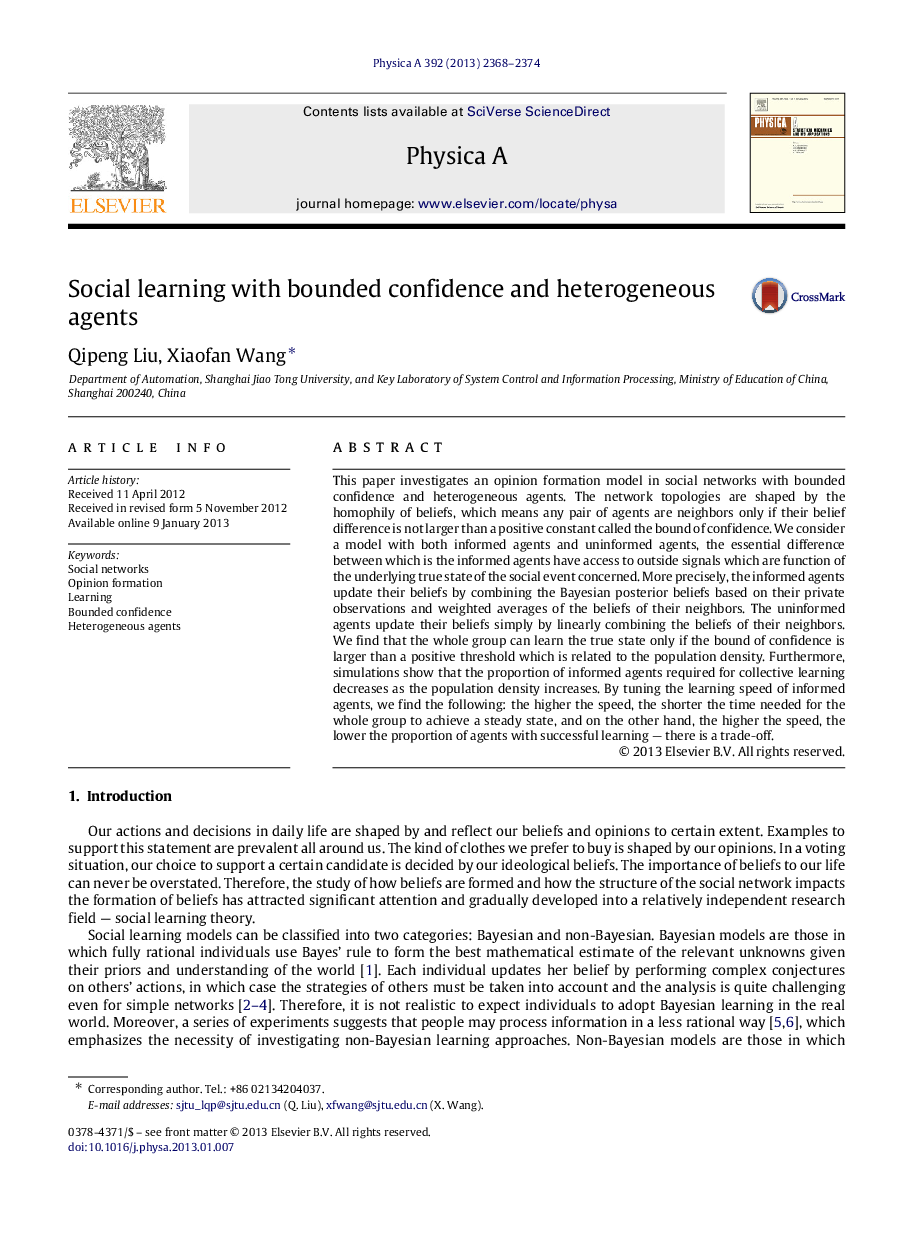| کد مقاله | کد نشریه | سال انتشار | مقاله انگلیسی | نسخه تمام متن |
|---|---|---|---|---|
| 975168 | 933019 | 2013 | 7 صفحه PDF | دانلود رایگان |

This paper investigates an opinion formation model in social networks with bounded confidence and heterogeneous agents. The network topologies are shaped by the homophily of beliefs, which means any pair of agents are neighbors only if their belief difference is not larger than a positive constant called the bound of confidence. We consider a model with both informed agents and uninformed agents, the essential difference between which is the informed agents have access to outside signals which are function of the underlying true state of the social event concerned. More precisely, the informed agents update their beliefs by combining the Bayesian posterior beliefs based on their private observations and weighted averages of the beliefs of their neighbors. The uninformed agents update their beliefs simply by linearly combining the beliefs of their neighbors. We find that the whole group can learn the true state only if the bound of confidence is larger than a positive threshold which is related to the population density. Furthermore, simulations show that the proportion of informed agents required for collective learning decreases as the population density increases. By tuning the learning speed of informed agents, we find the following: the higher the speed, the shorter the time needed for the whole group to achieve a steady state, and on the other hand, the higher the speed, the lower the proportion of agents with successful learning — there is a trade-off.
► Both bounded confidence and heterogeneous agents are considered in the model.
► The group can learn the true state only under large bounds of confidence.
► Larger population density requires smaller proportion of informed agents.
► Higher learning speed leads lower proportion of agents to successful learning.
Journal: Physica A: Statistical Mechanics and its Applications - Volume 392, Issue 10, 15 May 2013, Pages 2368–2374